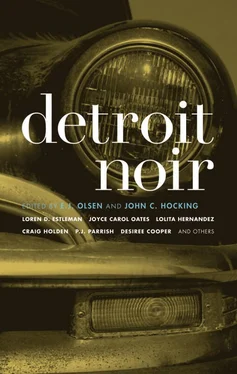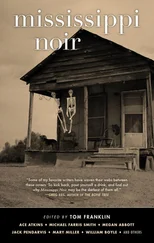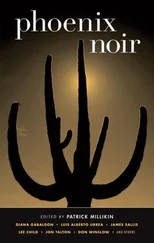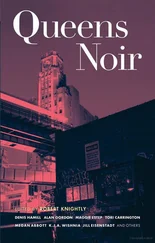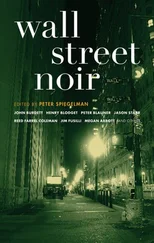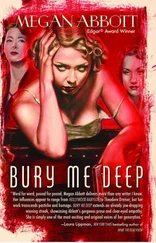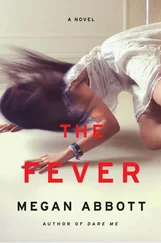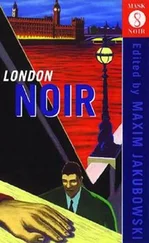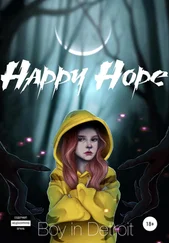I thought of the times that I had asked — that’s too soft of a word, implored! — my students to “watch what happens when you change your perspective.” At what point had I lost mine? Feeling a bit like the Pharisees, I looked around the house — the house that Berry, Diana, and Smokey built — once again trying to see it through Elliot or Diana’s eyes.
“Ya never realized ya lived in such an interesting city, did ya?” Diana looked me straight in the eyes triumphantly. She seemed to be gloating just slightly, as if she were letting me know that she saw things that I didn’t.
“Thanks for the reality check,” I said sincerely.
“Anytime.”
“You like this music, do you?” Elliot asked.
“Yeah, I grew up just like your daughter did, listening to the music of my parents. They neglected to name any of their children after any of the artists, however. Man, I wish my name was Tito.” We all laughed.
Elliot coughed and cleared his throat. Doing this caused him some pain. He shut his eyes tightly. He sat there motionless for just a few seconds. A lone tear emerged slowly from beneath his eyelid, then slid down his leathery right cheek as if it was in fear of being discovered. The grim, pained expression on his face melted into the calm that he had shown only moments ago when his daughter and my kids sang their rendition of “Stop! In the Name of Love.” His eyes were clear and his face showed no sign of death at that moment, then he spoke. It wasn’t rough and scratchy like it had been previously, a voice that was being infected by the same sickness that had bent his body. He spoke in his voice, clearly yet softly. He sounded distinguished and learned as only the British can.
“Back in ’68, I took my wife — well, she was just a girl I liked at the time — out to a pub one night. We ’ad been dancing to a lot of music, you know, the Jerk, the Twist — my favorite dance was the Camel Walk … Then they put on some Stevie Wonder. She and I socialed together to it.”
Elliot took off his face mask, closed his eyes, and leaned his head back, taking in a deep breath, as if he smelled the fragrance of his girl — his love — right there, his memories having become incarnate.
“Aaah, I can still ’ ear that song,” he said, his eyes still closed in dreamy retrospection. His right hand began to snap his fingers to a melody that played inside his mind, a slow-dance for him and his love.
Then Elliot did something that I was totally unprepared for, he began singing. Not a croaking, raspy-voiced whisper, but actually a pretty good imitation of Stevie Wonder.
“ La-la-laa-la-laa-laaaa, La-la-laa-la-laa-laaaa. My cherie ahh-mour, lovely as a summer’s day … ” He went on and sang more of Stevie’s love song. As the last of the lyrics eased from his mouth — “ Mah cherie amour, pretty little one that I ah-dore. You’re the only one mah haarrt beats for, how I wish that you were mine ” — I began to finish the song off for him, and in the middle of the La-la-laa ’s, Diana joined me and we finished together.
For a moment Elliot had left his sickness, his twisted body, and his leathery skin. He had become Elliot Taylor — Motown Sound Casanova — singing love songs softly into the ear of his girl as he slow danced with her. A brief respite from reality as he went back to a point in his life when face masks, bottled oxygen, and a wheelchair were as far away as the moon. Elliot’s memory freed him from the confines of the wheelchair, something that doctors, their orders, modern medicine, and technology had failed to do.
“That was the night I fell in love with your mum,” he said to Diana, taking her hand and rubbing it against his cheek tenderly. She smiled the smile of a well-loved child and replaced her father’s face mask, just in time for another coughing fit that knocked a few more moments off his life.
Some people walked into the museum. Their eyes were instantly drawn to our group. They made a point to look at all of us, making sure not to stare too long at Elliot, clearly something difficult to do. Invariably their eyes lingered on the wheelchair, the oxygen bottle, the mask, and then on Elliot. The faces of the people spoke loudly: My God, look at that poor man. He looks like he’s dying. Isn’t that so sad?
I smiled as my eyes went from Elliot to them and back to Elliot again. I smiled because I knew better.
The lost Tiki palaces of Detroit
by Michael Zadoorian
Woodward Avenue
I was on the bus, heading down Woodward Avenue. We had just stopped at West Grand Boulevard and I craned my neck to check out the former site of the Mauna Loa. I probably do this once a week on the bus on my way to work. I try to imagine how the place must have looked there in the New Center: a massive Polynesian temple, its thatched A-frame entryway flanked by flaming torches and swaying winter-proof palm trees on a gently rippling man-made lagoon — nestled amongst the cathedrals of twentieth-century V-8 Hydromatic Commerce, just across the street from where they decided the pitiful fate of the Corvair.
I have an extensive collection of Tiki mugs. My rarest are from the Mauna Loa. I own the Polynesian Pigeon, a section of ceramic bamboo with an exotic bird for a handle. Also the Baha Lana, an ebony Tiki head sticking his tongue out at the drinker. Both say Design by Mauna Loa Detroit on the bottom.
There were high hopes for the place. It was to be the largest South Seas supper club of its kind in the Midwest. (Second only to the majestic Kahiki of Columbus, Ohio, now fallen to the wrecking ball since greedy owners sold to Walgreen’s.) Over two million dollars were spent on this paradisiacal bastion of splendor, a lot of money in the late ’60s.
There were five different dining rooms at the Mauna Loa (Tonga, Papeete, Bombay, Lanai, and one other that I forget), as well as the lavish Monkey Bar, which featured a Lucite bar-top with 1,25 °Chinese coins embedded in it and tables made from brass hatch covers from trading schooners. A waterfall scurried down a mountainette of volcanic lava into a grotto lush with palm trees and flaming Tikis. The waiters wore Mandarin jackets and turbans as they served you.
The Mauna Loa opened in August of 1967. Barely a month after the worst race riot in Detroit’s history. It lasted not quite two years.
“I’m invisible!”
That’s what the homeless man on the bus kept saying. He boarded at West Grand Boulevard and none of us dared look at him. But then you never look anyone in the eye on the bus. All gazes are cast peripherally, on the down-low. With the homeless man, we simply examined the air around him. Even the bus driver, a large man, blue-black and stoic, who never says more than a word or two to anyone as they board, looked away as the guy paid his fare. We all knew someone got on, but we weren’t sure who it was. He could be smelled but not seen. The homeless man must have walked down the aisle defiantly, as if daring anyone to say something to him.
“That’s right! I’m invisible!”
What could we say? We had all looked away. We had made him invisible.
I was pretty sure that he was sitting three aisles up from me on the other side. The bus wasn’t nearly as full as it usually was on a Monday — President’s Day or some such nonsense. I kept my eyes on my newspaper, but they kept straying out the window searching for landmarks, lost ones as well as those still standing. I gazed upon a beautiful old abandoned factory from the ’20s, with a sign that read: AMERICAN BEAUTY ELECTRIC IRONS.
I kept my ears open. I felt the homeless man’s eyes on me. I wanted to look, but didn’t want him to catch me looking because I wasn’t sure what he would say. When I felt his eyes leave me, I glanced forward into the bus, at the spaces around him.
Читать дальше
